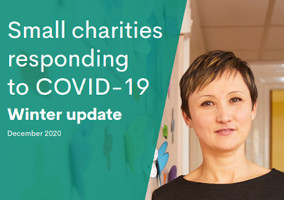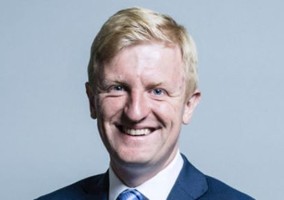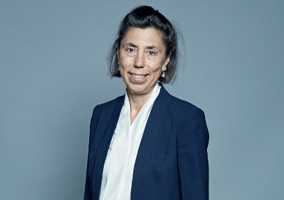Charities need to gather better data and then use it to tell stories that engage in order to influence policy makers, sector leaders said yesterday.
Rita Chadha, chief executive of the Small Charities Coalition, and Sarah Vibert, director of public policy and volunteering at NCVO, were speaking at the launch of Small Charities Data hub, a project led by the Lloyds Bank Foundation for England and Wales (LBFEW).
The new resource pulls together data from a range of sources to help charities understand their impact and be able to explain it to policy makers. The initiative has involved the Small Charities Coalition, NCVO, LocalGiving, the FSI, Locality and 360Giving.
Paul Streets, chief executive of LBFEW, said: “It might be one small step for Lloyds Bank Foundation but we hope it’s a giant step for small charity kind.”
He added the sector is “often accused of not having good data” and urged charities and funders to use, and add to, the resource.
Streets also warned that small charities face a challenging year, with many in “jeopardy” after a year where they have stepped up deliver more, when financial pressures increased.
‘Data provides the evidence with which to influence change’
Vibert praised small charities for response to coronavirus.
“We know our small charity members are nimble, which has been so important during the pandemic when services have had to pivot overnight,” she said.
She said government had been asking NCVO and other sector bodies how the pandemic is affecting charities throughout the pandemic.
While she is “really proud of the work that our research team did with Charity Finance Group and others” to come up with the £4bn figure for how much the sector could expect to miss out on, she said: “This data wasn’t perfect and it showed we need better data as a sector, and better data about the sector.”
Later in the discussion she said the lag between charities filing information with the Charity Commission and the time it takes NCVO to sort it out for its Almanac resource meant: “We were using data that was already two years out of date, to talk about a pandemic that hadn’t yet unrolled so it was quite a challenge to come up with robust evidence.”
She also emphasised that good data is a key tool for convincing politicians to act.
“Put simply data provides the evidence with which to influence change,” she said.
‘Outdated notion of what charity is like in contemporary Britain’
Chadha said that having one central resource for small charities that is “light touch” where charities can access useful information was valuable because small charities don’t always have time to invest in this work.
She added that this resource offers a “richer picture than single organisational surveys can do by themselves”.
Chadha also highlighted the difficulties in getting the government to understand the sector.
“Government has struggled to understand charities, full stop,” she said. “But it has a bigger struggle to understand modern day charities.”
She later said this was partly due to capacity issues during Covid, but also “because there is a very outdated notion of what charity is like in contemporary Britain”.
Chadha also said that when some “evidence that has been put to government has been questioned.
"It’s not been given the right answers, but then that’s because we haven’t known what questions are being asked.”
She also pointed out that, despite being told charities would not have the time to fill in surveys, her experience is that her members are very engaged.
“This demonstrates that small charities do want to be involved and do want to be seen,” she said.
Government keen for more data
Both Oliver Dowden, culture secretary, and Baroness Barran, minister for civil society, have emphasised the importance of having good data about the sector.
Chadha and Vibert both referred to comments Dowden made about the government not understanding charities as well as it thought it did.
Neither panellist responded directly to a question from the audience about whether the government was asking for more data as a way to delay acting on what they know.
Editor's note
This article has updated to include the detail that NCVO worked with Charity Finance Group and others to come up with the £4bn figure.
Related articles











